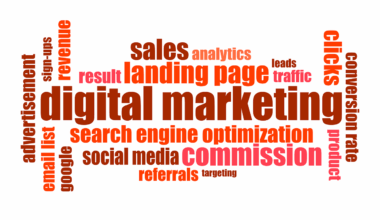Cross-Cultural Partnerships for Event Marketing Success
Event marketing has evolved significantly, reflecting the diverse populations and preferences of global audiences. This evolution necessitates a strategic approach that embraces multicultural partnerships. Collaborating with various cultural groups not only enhances audience engagement but also fosters inclusivity, making events relevant and appealing. By understanding cultural differences, marketers can tailor their messages effectively. This can lead to improved marketing strategies that resonate with targeted communities. One effective method includes engaging diverse influencers who genuinely represent the ethnic backgrounds of the audience. Such partnerships enhance trust, as people are more likely to respond positively to familiar voices. Moreover, storytelling plays a pivotal role. Sharing narratives that celebrate different cultures creates an emotional connection with attendees. Marketers should consider integrating cultural elements into the event, from entertainment to cuisine, which provides an authentic experience. This, in turn, aids in breaking down barriers, thus forming a lasting impact. Following these strategies opens doors to new audiences and strengthens the connection between brands and consumers, leading to greater event success and outreach once multiculturalism becomes central to the approach.
Incorporating diverse practices not only enriches events but also enhances brand reputation. Companies that prioritize multicultural partnerships often enjoy an increased level of customer loyalty and support. This occurs because culturally diverse events resonate with a broader audience, making stakeholders feel valued. Additionally, sponsors are drawn to diverse events, as they recognize the marketing potential behind engaging various demographics. Brands can capitalize on these collaborations to forge emotional connections that foster long-term relationships with their customers. However, establishing these partnerships requires commitment and sensitivity. Understanding the cultural values and beliefs of different groups can help avoid stereotypes and offense. It is essential to actively seek input from diverse communities to ensure representation is genuine. Additionally, continuous education on cultural best practices can prepare marketers for potential challenges and opportunities in this space. The investment in multicultural training can significantly impact how brands are perceived. It builds trust as consumers see brands making an effort to understand and engage with their culture. The result is a more inclusive and supportive environment that benefits both attendees and brands.
Effective Strategies for Multicultural Event Marketing
To successfully market multicultural events, implementing effective strategies is crucial. Firstly, extensive research into target audiences allows marketers to identify their preferences and cultural nuances. Marketers must prioritize their outreach efforts based on demographics, interests, and cultural values. Secondly, strategic partnerships with local cultural organizations and leaders can enhance credibility. These entities often give guidance regarding authentic representation and outreach methods. By collaborating with them, brands can gain deeper insights and access to additional audiences. Thirdly, utilize social media platforms to share event content creatively. Engaging storytelling, striking visuals, and authentic voices are essential to capture attention. Regular updates and interactive elements can keep followers engaged before, during, and after the event. Furthermore, consider utilizing multi-lingual marketing materials to ensure inclusivity. This enhances accessibility and demonstrates commitment to reaching audiences in their native languages, fostering connection and trust. Additionally, leveraging feedback post-event is invaluable. Listening to the voices of attendees helps marketers gauge the event’s impact and effectiveness while identifying areas for improvement. Each step paves the way for future success through continual learning and growth.
Measuring success in multicultural event marketing requires specific metrics. Marketers should focus on both quantitative and qualitative data to assess the event’s effectiveness. Traditionally, attendance numbers and ticket sales are common metrics; however, they don’t capture the entire experience. Surveys and feedback forms distributed during and after the event provide essential insights into attendee satisfaction. Questions targeting cultural representation and engagement can uncover valuable information. Social media engagement is another vital metric worth monitoring. Tracking likes, shares, and comments can help marketers understand how well their messaging resonated. Additionally, analyzing demographic data from attendees can identify whether the target audience reached its intended goals. This information assists brands in making informed decisions for future events. Furthermore, examining partnership outcomes, like sponsorship deals or collaborations formed, illustrates the business benefits derived. Reflecting upon these metrics allows marketers to understand the impact of their multicultural strategies comprehensively. Learning from these insights ensures continuous improvement in connecting with diverse audiences. This holistic approach is vital to achieving sustained success in multicultural event marketing.
Community Engagement Beyond the Event
The importance of community engagement extends beyond the event itself. Establishing connections with local communities before, during, and after the event leads to long-term relationships. Marketers should prioritize engagement activities that foster a sense of belonging and inclusivity among attendees. Building relationships through workshops, meet-ups, or online forums encourages attendees to re-engage and share their experiences. Collaborating with local charities or community organizations for social impact initiatives is another way to give back while amplifying brand visibility. Event attendees appreciate brands that authentically contribute to their community. Such relationships often lead to increased word-of-mouth recommendations, which significantly enhance marketing efforts. Continuous communication post-event is equally vital. Sending follow-up emails expressing gratitude and soliciting feedback creates a feel-good atmosphere. In these communications, brands can share learnings, announce future events, and keep the dialogue open. Offering exclusive content or discounts for subsequent events can also encourage repeat attendees. In doing so, brands not only enhance customer loyalty but also enrich the community experience, ultimately creating an impactful and sustainable relationship.
Moreover, personalization enhances the event experience for diverse audiences. Utilizing data analytics can help marketers understand attendee behaviors and preferences, allowing for tailored interactions. For example, sending personalized invitations based on prior engagements can make individuals feel valued. During the event, personalization can extend to attendees’ preferences for content and networking opportunities. Implementing technology such as event apps may facilitate personalized agendas based on interests. By enabling attendees to create their schedules, brands cater to diverse needs and foster a more satisfying experience. Post-event personalization should not be neglected; sharing curated content based on attendees’ interests can keep them engaged long after the event concludes. Additionally, continuous support for attendees in their respective communities helps maintain connections formed during the event. Reaching out with community-focused messages or resources shows dedication to their ongoing satisfaction. These efforts shape perceptions about the brand as one that cares about substance, not just profit. Through embracing personalization across all engagement touchpoints, brands can create lasting impressions that translate into loyalty and greater engagement for their future events.
Conclusion: The Path to Event Marketing Excellence
In summary, embracing multicultural event marketing is crucial for creating meaningful connections in today’s diverse environment. Cross-cultural partnerships foster authenticity, enhance audience engagement, and contribute to community well-being. Marketers can capitalize on these relationships by employing effective strategies like thorough research, community collaboration, and strategic messaging. Understanding and respecting cultural nuances is key to fostering genuine relationships with attendees. Marketers must measure their impact through effective analytics, ensuring continuous learning and improvement. An ongoing commitment to community engagement amplifies brand presence beyond just events, enriching relationships long-term. Personalization enhances experiences at every stage, ensuring attendees feel valued and connected to the brands they engage with. By focusing on maintaining connections post-event, brands solidify their presence within diverse communities. Developing practices that prioritize inclusivity enhances brand reputation and fosters trust, leading to loyal customers. Thus, the path to event marketing excellence requires not only effort but genuine dedication to understanding and celebrating diversity. It is an opportunity for brands to thrive in various markets while creating innovative, impactful experiences that resonate across cultures.


